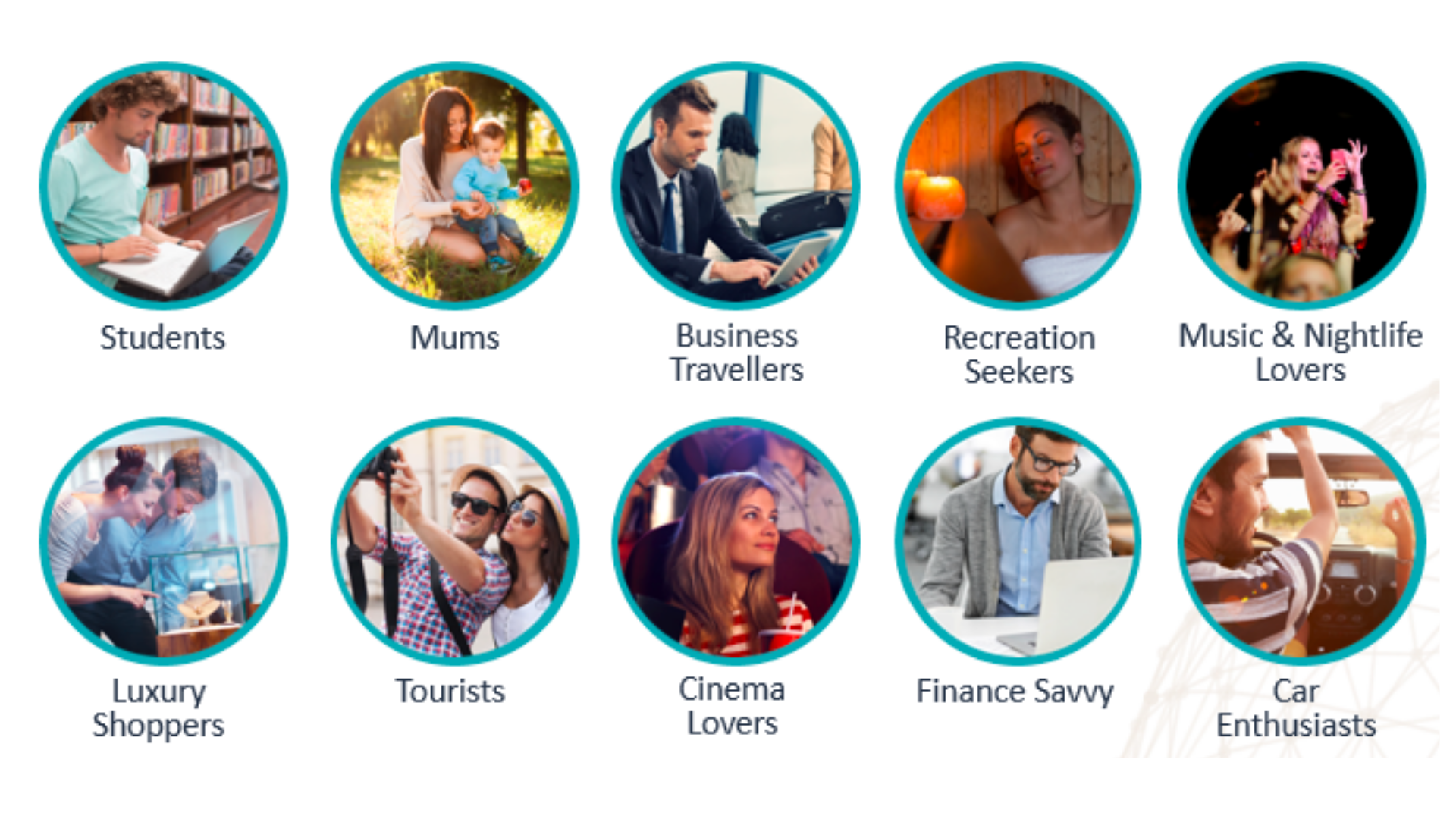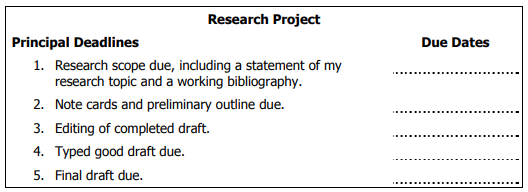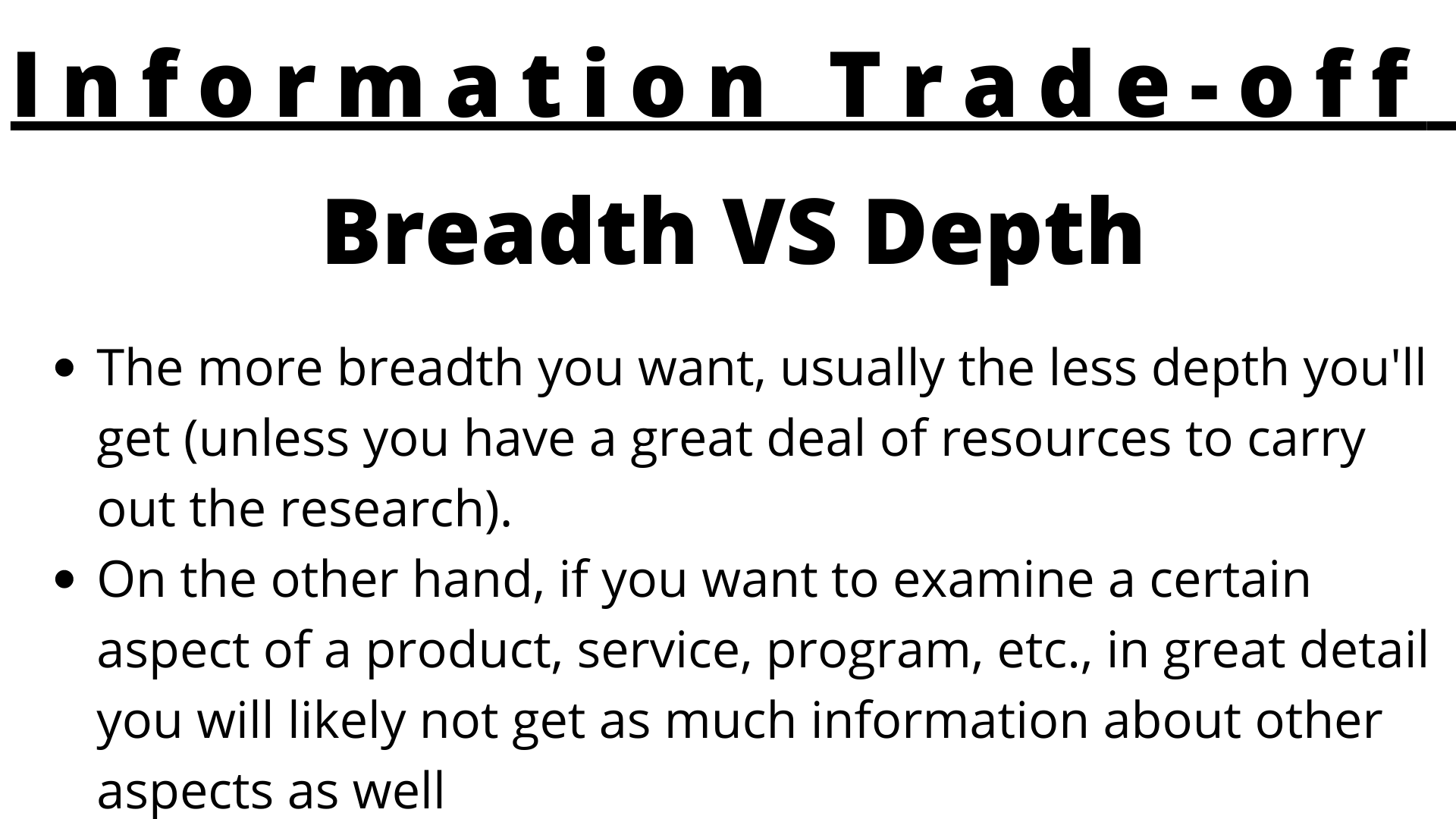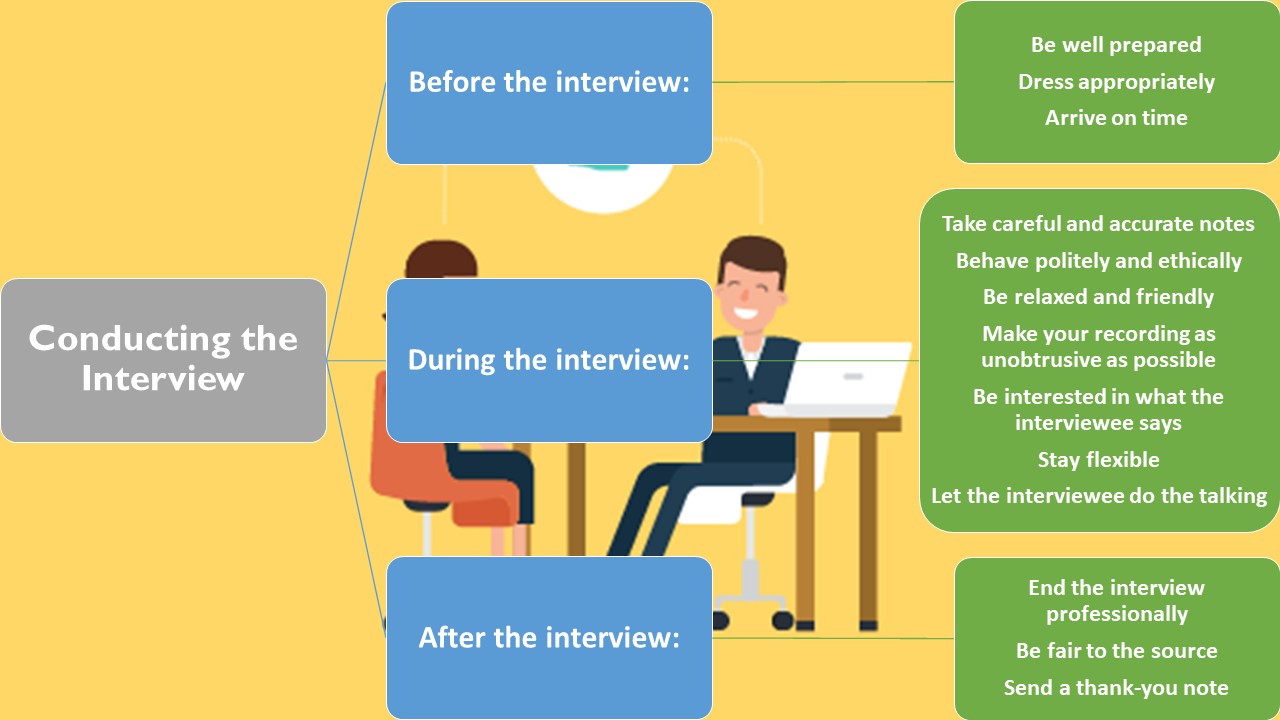Identifying and Defining Scope of Topic
Research is nothing more than finding out what you need to know. It can be done in different ways from looking up the meaning of a word to conducting an opinion poll. Depending on what you want to find out, you can ask experts in the field their opinion, do experiments, interview eyewitnesses, analyse photographs, or observe the behaviour of people who are not aware that they are being watched.
Any organised investigation can be referred to as research. Research is important to your writing as you will not always know enough on your own about the subject you will be writing on.

To identify and define the scope of your research project you should consider the following aspects:
- Subject
- Audience
- Voice
- Information and opinion
- Length
- Sources
Subject
Frame your research task in the form of a question that you want your investigation to answer. You may explore any subject that arouses your interest. Before attempting to answer the question, you have to analyse and break it down into logical segments. Only then will a clear pattern emerge. In other words, you need a plan for your writing. In the process of identifying a scope, you need to decide what will be included in your research project and what will be excluded from it.
The scope statement is a short paragraph that describes in terms as simple as possible the principal deliverables and the limits or boundaries of the project. It should be short and should contain as many active verbs as possible because it will later serve as a basis for creating the outline of your research.
A good scope statement has three components:
- The principal deliverables of the research project.
- The objectives, which are measures of the success of the research project.
- A justification for the research project. The scope statement captures the goal of the research project and also defines the limits of the project in very succinct terms. When choosing your subject, you can consider the following:
- Choose a subject that relates to your immediate environment. It will be easier to access information.
- Topical issues are an important source as they are relevant to current situations.
- When you read research articles you will often notice recommendations for further research mentioned at the end of the article.
- You can speak to experts in the field of study as they can come up with ideas that might help.
- Contemporary issues that are debatable can be found in letters that readers write to newspapers and magazines.
- You might find discrepancies between theory and practice.
Avoid a subject that is too wide in scope or that is too technical.
Audience

Understanding readers and their needs is a key factor in creating a useful research report. Although all elements of audience analysis or identification hinge on some basic stereotypes and relying entirely on stereotypes for any purpose is dangerous, these four basic elements of audience analysis might, nevertheless, affect how you would write your document:
Use of information: Most readers read workplace documents to help them perform their jobs and want to know rather quickly how any given document concerns them. Thus, you must determine whether your audience will use your document to make decisions, understand the history of an idea or position within your organization, gain insights about related matters, perform a task, fulfil a requirement, or accommodate a policy. Therefore, job-related factors that determine how the reader will use the information you provide will help you decide what kinds of content to include for your audience.
Level of education: Generally, the more education audience members have, the stronger their reasoning skills, the more advanced their vocabulary, the greater their familiarity with metaphors and other comparisons, and the greater their capacity for following complex and even theoretical arguments. Thus, knowing your audience’s level of education will allow you to make some decisions about the style of your writing and the appropriate sophistication of your argument or explanation.

Voice
You have to honestly present what you have learned in your research. Remember that your reader’s interests have to come first. You are allowed to share ideas and opinions of your own. Whatever point of view you take, should be made clear to your reader from the start.
Length
A typical research paper is six to twelve pages long. The length of your paper should be determined by the nature of your subject.
Sources
Your research should be based on a variety of research methods. You can include secondary sources such as books, periodicals, newspapers, as well as electronic media such as the Internet. It can also include interviews you have had with experts in the field.

Planning and Sequencing your Research Steps
First, think about how much time you can spend on the project. Then, begin as early as possible in order to allow time for Interlibrary Loan, recalling books, and other snags. And, most importantly, choose a topic that is MANAGEABLE. Manageable means that the topic isn't too broad or too narrow so that you would need more time or so you can't find enough information.
Think about the things listed below BEFORE you start to choose a topic. Although deciding on a topic sounds simple, you'll regret it later if you choose one quickly without doing some looking around first.
Writing a research paper involves a lot of work. You have to:
- choose the topic,
- explore it,
- chase down leads,
- take notes,
- consult different sources,
- think,
- jot down ideas,
- narrow your projects focus,
- write the first draft,
- revise and revise again.
As you can see, a research project cannot be done in a day or two. You need to plan to enable you to have enough time to undertake each step of the process. The following schedule is an example of planning the research process:

Research Plans Depend on Information You Need and Available Resources
Often, organization members want to know everything about their products, services, programs, etc. Your research plans depend on what information you need to collect in order to make major decisions about a product, service, program, etc. Usually, you're faced with a major decision due to, e.g., ongoing complaints from customers, need to convince funders/bankers to loan money, unmet needs among customers, the need to polish an internal process, etc. The more focused you are about what you want to gain by your research, the more effective and efficient you can be in your research, the shorter the time it will take you and ultimately the less it will cost you (whether in your own time, the time of your employees and/or the time of a consultant).

There are trade-offs, too, in the breadth and depth of information you get. The more breadth you want, usually the less depth you'll get (unless you have a lot of resources to carry out the research). On the other hand, if you want to examine a certain aspect of a product, service, program, etc., in great detail, you will likely not get as much information about other aspects as well. For those starting out in research or who have very limited resources, they can use various methods to get a good mix of breadth and depth of information. They can understand more about certain areas of their products, services, programs, etc., and not go bankrupt doing so.
Key Considerations to Design Your Research Approach Consider the following key questions when designing your research plan:
- For what purposes is the research being done, i.e., what do you want to be able to decide as a result of the research?
- Who are the audiences for the information from the research, e.g., funders/bankers, upper management, employees, customers, etc?
- What kinds of information are needed to make the decisions you need to make and/or to enlighten your intended audiences, e.g., do you need the information to really understand a process, the customers who buy certain products, strengths and weaknesses of the product or service or program, benefits to customers, how the product or service or program failed some customers and why, etc.?
- From what sources should the information be collected, e.g., employees, customers, groups of employees or customers, certain documentation, etc.?
- How can that information be collected in a reasonable fashion, e.g., questionnaires, interviews, examining documentation, observing staff and/or clients in the program, conducting focus groups among staff and/or clients, etc?
- When is the information needed (so, by when must it be collected)?
- What resources are available to collect the information?
Research Techniques

Gathering Information
Do some preliminary research to explore the topic you are considering.
- Learn more about your topic by reading about it in encyclopaedias and other general reference sources. If the topic seems appropriate, take notes and see if you can narrow your focus to a specific question.
- See if your topic is researchable by assembling a working bibliography of about a dozen sources that you intend to consult. Use a variety of search tools. Include books, periodicals, newspapers, and electronic media, as appropriate for your topic. If, for example, you are writing about a recent event, newspaper articles will be a significant source of information. On the other hand, if you are writing about an event from ancient history, you may not discover any newspaper sources.
- If adequate sources are not available, see if you can broaden your topic or switch to another one. If you find too many sources, read more about the subject and narrow your paper's focus within more manageable limits.
- Make sure your sources are available. Find out if the library has the periodicals and newspapers you are seeking. Chequebooks out. If necessary, order books from other libraries through Inter-Library Loan. Ask the circulation desk to recall desired books that have been checked out by others. If most of the books are gone, however, someone else is probably writing on your topic, and the sources you need may not become available in time. If so, avoid needless frustration by switching now to another topic.
- Do some quick reading in your sources to learn more about your topic. It might be wise to ask a professor or some other authority on your subject for suggestions about the topic and for further research sources.
- Decide what additional sources can provide valuable information for your project.
- Write letters to request information, if necessary. Arrange interviews in advance by setting up appointments.
- Be sure to record your discoveries, questions, and other experiences with locating sources in your research notebook.
Interviewing
In addition to print sources, interviews with experts can provide valuable material for your paper. Because the people you interview are primary rather than secondary sources, the first-hand information they provide is exclusively yours to present – information that readers will find nowhere else. Therefore, interviewed sources can make a favourable impression, giving readers the sense that they are getting expert testimony directly and reliably.
Your own reliability and credibility may also be enhanced since you demonstrate the initiative to have extended your search beyond the usual kinds of sources. In your work situation colleagues and subject matter, experts are an accessible source of expert information. Being familiar with research in their individual fields, they also can suggest published and unpublished resources you might not have found in your library research. You may also find experts living in your local community. Other valuable sources include participants and eyewitnesses. If you were researching, say, the War in South-West Africa before it became Namibia, you could interview relatives and neighbours with experience in the military. Be resourceful in considering interviewees who can contribute to your knowledge and understanding. Conducting interviews may not be the first order of business in your research project, but because interviews require advance planning, it is important to set up appointments as early as possible even before you are ready to conduct them.


Conducting the Interview
Some interviews may consist of a simple question or two, designed to fill specific gaps in your knowledge about your topic. Others may be extended question-and-answer sessions about a variety of topics. The success of your interviewing depends on your preparation, professionalism, and interpersonal skills. The following guidelines should be followed when you conduct an interview.

Before the interview:
Be well prepared. The most important part of the interview takes place before the questions are posed. Become as informed about your subject as you can so that you can ask the right questions. Use your reading notes to prepare questions in advance.
Dress appropriately for the interview. How you dress can influence how the interviewee behaves toward you; people are most comfortable talking with someone who dresses as they do. Business and professional people, for example, are more likely to take you seriously if you are wearing standard business attire. On the other hand, formal attire would be inappropriate when interviewing striking factory workers, who might be reluctant to speak freely with someone who looks like management.
Arrive on time for your appointment. Not only is arriving on time a matter of courtesy, but also it is essential in assuring the interviewee's cooperation.
During the interview:
Take careful and accurate notes. If you intend to quote your source, you must be certain that you have copied the person's words exactly. A tape recorder can give you an accurate transcript of your interviews.
Behave politely and ethically. Be certain you have the interviewee's permission if you tape-record the conversation. If you take notes, offer to let the interviewee check the transcript later to ensure accuracy (doing so may elicit further elaborations and additional statements that you can use).
Be relaxed and friendly. People who are not accustomed to being interviewed are often nervous at first about having their comments recorded. By being friendly and relaxed, you can win their confidence and put them at ease. The most fruitful parts of interviews occur when interviewees become absorbed in what they are saying and forget they are being recorded. Begin with general questions that can be answered with ease and confidence. Later introduce more specific and pointed questions. (For experienced interviewees, these precautions may not be necessary.)
Make your recording as unobtrusive as possible. Many people will not speak freely and naturally when constantly reminded that their comments are being recorded. Place the tape recorder out of the interviewer's direct line of sight. Do not write constantly during the interview; write down key phrases and facts that will allow you to reconstruct the conversation immediately after the interview.
Be interested in what the interviewee says. People will speak much more freely with you if they sense that you are responsive to their comments. It is a mistake for an interviewer to read one prepared question after another, while barely listening to the interviewee's responses. Such wooden interviewing produces an uncomfortable atmosphere and strained responses.
Stay flexible. Do not be a slave to your prepared questions. Listen with real curiosity to what the person says and ask further questions based on what you learn. Request explanations of what is not clear to you. Ask probing questions when a topic is raised that you would like to learn more about.
Let the interviewee do the talking. Remember that it is the interviewee's ideas that you are interested in, not your own. Avoid the temptation to state your own opinions and experiences or to argue points with the interviewee.

After the interview:
End the interview professionally. Check your notes and questions to determine if any gaps still need to be filled. Thank the interviewee. Ask if the person would like to check your use of statements and information for accuracy and whether you can call again if you have further questions. Offer to send the interviewee a copy of your paper when it is completed.
Be fair to the source. When you write the paper, be certain that any ideas or statements you attribute to the source are true reflections of the sound and spirit of the person's answers and comments. Be accurate in quoting the person, but eliminate slips of the tongue and distracting phrases like uh and you know.
Send a thank-you note. Whether or not you send a copy of your paper to the interviewee, you should send a note expressing your appreciation for the help that the person provided.